










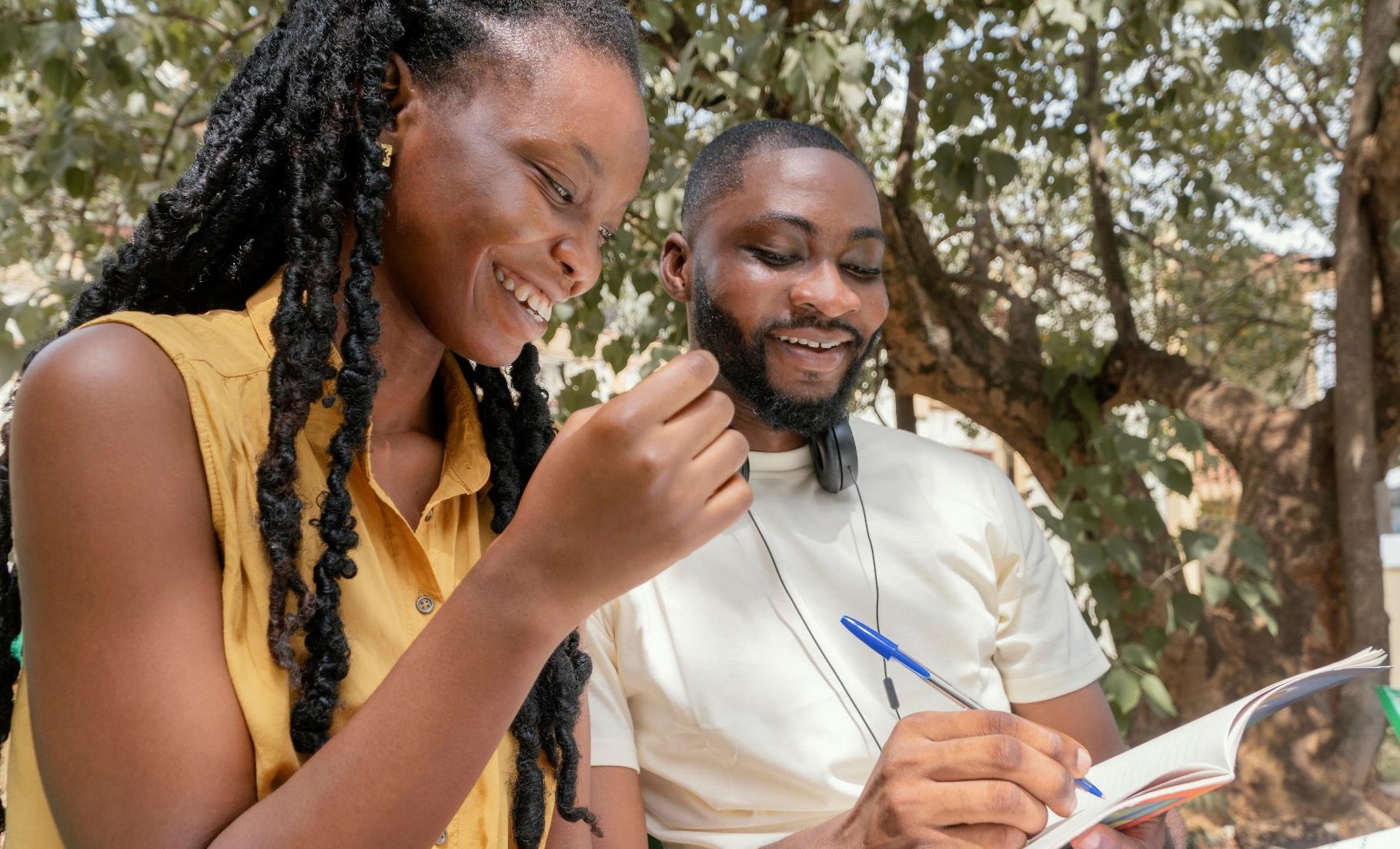
This toolkit has different types of information. For easier navigation please follow the colour guide below:
Videos & case studies
Abbreviations
EPR – Extended Producer Responsibility
GBV – Gender Based Violence
GDP – Gross Domestic Product
IWRS – Informal Waste and Recovery Sector
KPP – Kenya Plastics Pact
WWEE – Women in Waste Economic Empowerment Information
NHIF - National Health Insurance Fund
PPE – Personal Protective Equipment
PRO - Producer Responsibility Organization
WSP – Waste Service Providers
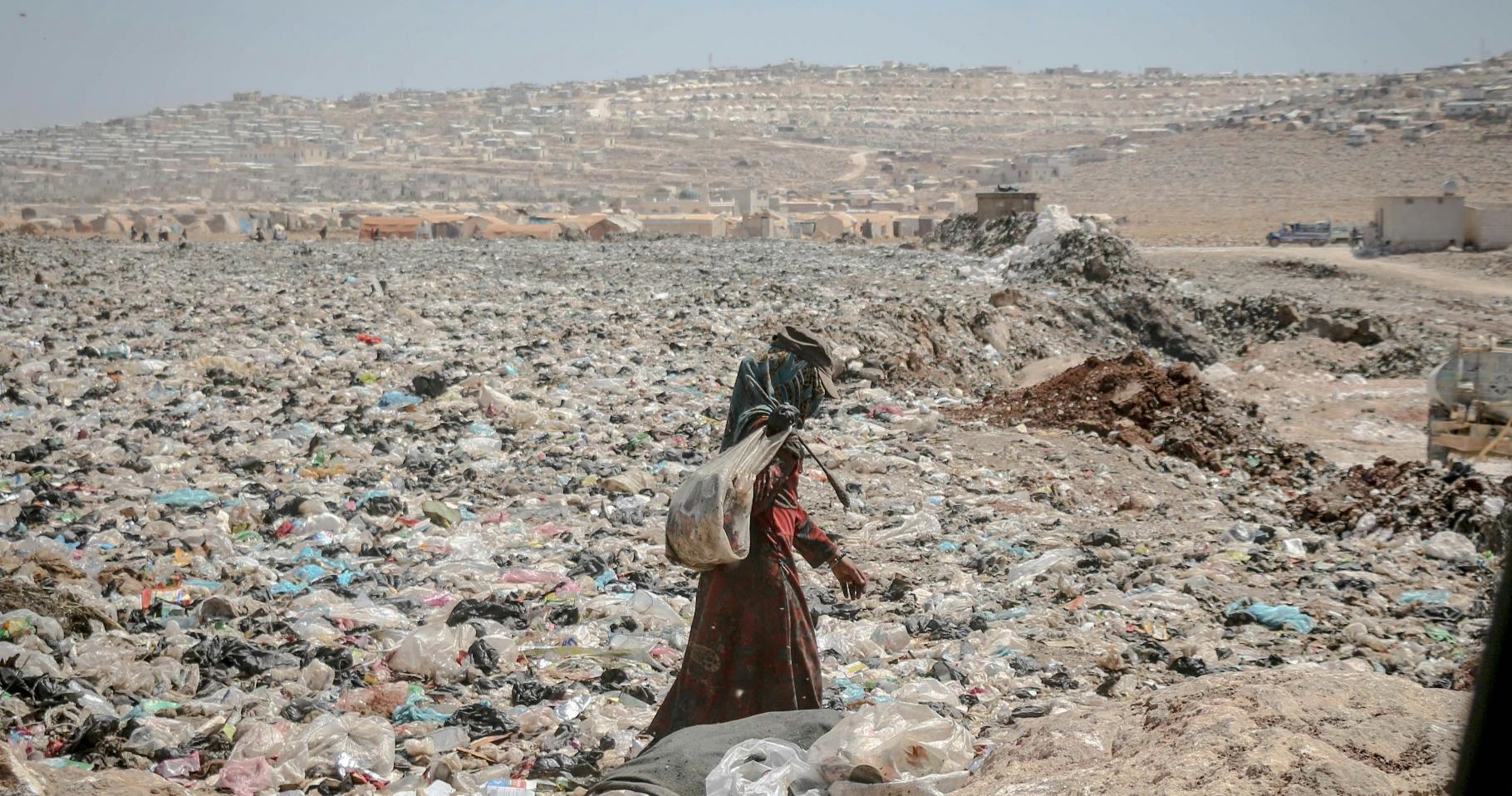
Kenya has witnessed remarkable progress towards gender equality, marking a significant achievement with a 77th position out of 146 countries in the Global Gender Gap Index 2023. Nonetheless, substantial disparities persist between men and women across various sectors, including education, healthcare, political representation, and workforce engagement.
Despite concerted efforts through gender-inclusive initiatives, legislative reforms, and policy enhancements, challenges persist, underscored by factors such as poverty, population growth, educational gaps, and deeply
ingrained cultural variations. According to statistics, women and adolescent girls remain the most vulnerable demographic, grappling with heightened risks of poverty, particularly within community and household settings.
This vulnerability is intensified by gender-based violence and unfavourable, deep-rooted cultural norms that dictate gender roles and limit female empowerment.
Moreover, women's restricted access to land benefits in some cultural settings and other resources impedes their economic involvement, with statistics from the World Bank revealing that women in Kenya
only enjoy 81% of the legal rights afforded to men. The burden of unpaid caregiving and domestic duties further constrains women's ability to engage in productive endeavours, curtails their mobility, and hinders access to crucial market resources, financing, and information necessary for economic empowerment.
Taking decisive action to uplift and empower women is not just desirable; it's imperative. By equipping women with the resources and opportunities they need, we enable them to overcome these obstacles and become active contributors to the economic advancement of their communities.
Gap Index 2023
Men dominate Kenya’s economic, political, and social spheres despite women making up most of the population
Employment rate
Kenya ranked 77th of 146 countries in the Global Gender Gap Index 2023.
Legal rights womans
The employment rate of women is 60.3% & men 70.4%
Earn


Women in Kenya only enjoy 81% of the legal rights afforded to men
Physical violence

A third of Kenyan females (approximately 9 million women) –have experienced some form of physical violence. One in four women is physically abused during pregnancy.

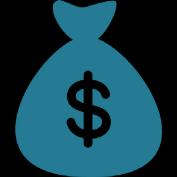
On average, women earn 32% less than their male counter parts.
Married before age 18
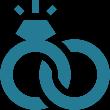
• 23% of Kenyan girls are married before their 18th birthday
• 4% are married before the age of 15
• 3% of Kenyan boys are married before 18.
Gender equality in political representation is a constitutional requirement under Article 27(8) of the Constitution of Kenya.

Overview of the toolkit’s purpose: to address gender-related challenges & promote inclusivity in the waste sector
In response to the pressing need for gender inclusivity and equity within the waste management sector in Kenya, this comprehensive toolkit contributes to the transformative journey towards fostering gender mainstreaming and empowerment.
The primary objective is to empower women within the waste sector by providing them with essential skills and knowledge, enabling them to overcome gender biases and advance in their careers effectively.
The toolkit has been developed in close collaboration with experts, gender advocates, and over 70 men and women working in the waste sector on the ground to ensure its relevance and effectiveness.
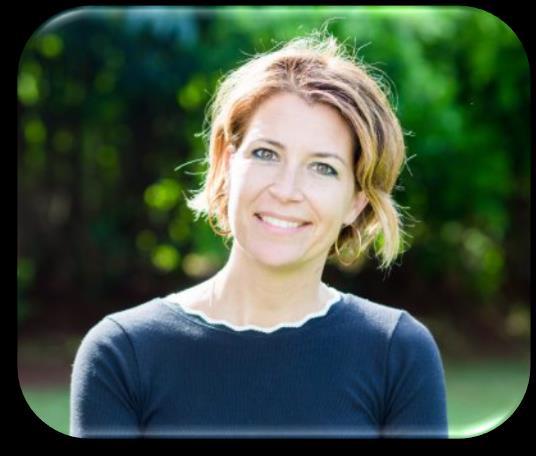
With the overarching goal of addressing genderrelated challenges throughout the waste value chain, we have crafted a comprehensive toolkit and practical manual tailored to the needs of all levels of workers in the waste sector.
Through this empowerment, we aim to support individual women and benefit relevant stakeholders including County Governments, businesses, and other waste-to-value practitioners by creating inclusivity and support within their operations.
Drawing from research, questionnaires, and expert interviews, we composed a kit rich in practical content and real-life case studies, serving as a valuable resource for women seeking to navigate and excel in the waste value chain.
Our vision is lasting change within the waste sector, where women are celebrated as leaders and agents of progress. A waste sector where diversity is the norm, gender equity flourishes, and waste is harnessed for environmental sustainability and value creation
Karin Boomsma – Project Director, Sustainable Inclusive Business Kenya
Diagram 2 Respondents’ Sector Representation
Diagram 3 Respondents’ Demographic Information
Diagram 4 Respondents’ Gender Representation
Diagram 5 The Size of the organizations represented

Diagram 6 Organizations’ level of operation in the waste value chain

We asked different people what came to their minds when they heard the expression gender mainstreaming
The diagram below represents a word cloud with various terminologies that were received.


Create your own mind map for the word gender mainstreaming. Can you relate to these terms? Exercise

8 A Gender Mainstreaming Word Cloud
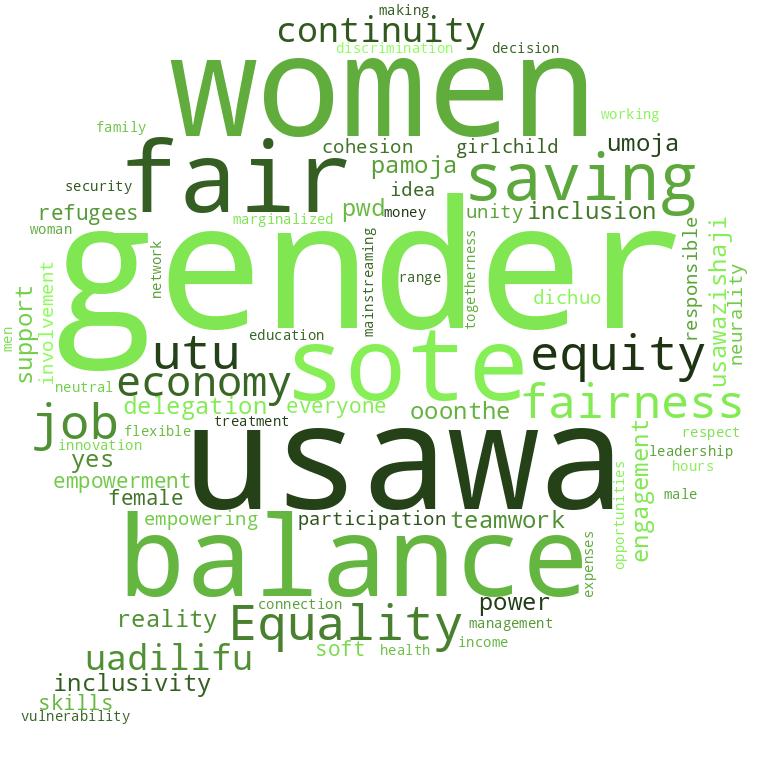 Diagram
Diagram
The concept of gender mainstreaming presents a promising avenue for achieving authentic gender equality across the globe. It implicates the equal contribution of women and men to every dimension of life, whether private or public.
This approach is much more than the representation of women and men within a given sector, organization, or business; it addresses the core of gender imbalances in all facets of projects, policies, and processes.
As a result, it strives to cultivate environments and outcomes inclusive of all genders, bringing us closer to a world where equality is the norm.
Proof of ‘why’ gender mainstreaming is important.
Research examining gender disparities in the labour market highlights the importance of eliminating gender-based discrimination in job opportunities and compensation. Failure to address the gender gap results in the squandering of significant economic prospects. The Global Institute report by McKinsey & Company underscores the importance of closing the gender gap, citing the potential injection of an additional $12 to $28 trillion into the global GDP. The report highlights that gender equality is essential for fairness, unlocking our full economic potential, and creating an all-encompassing and thriving society.
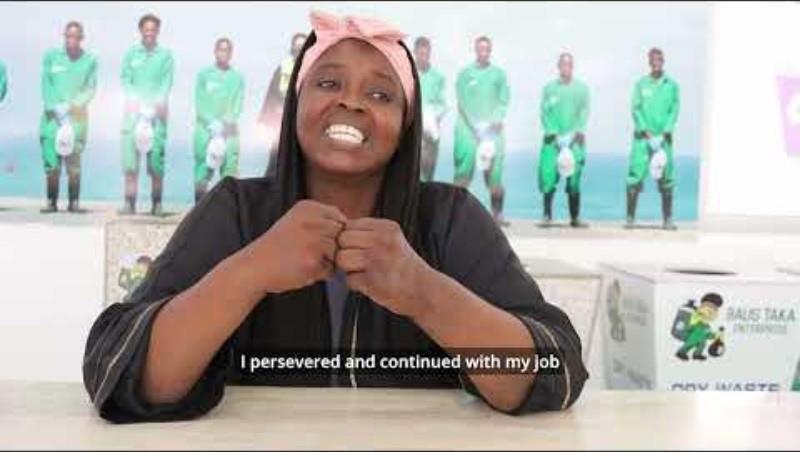

As a widow, this job has helped me a lot. My husband died 8 years ago, and I have two children in secondary school. I’m paying for their education through this waste management job. I know how to plan myself, thanks to the financial training by Baus Taka. I know how to save money and correctly budget for food, education, and clothing. As a woman, I need to plan myself properly. So, when I start my week, I know exactly how to allocate my money.
Mariam Juma – Waste Collector in Mombasa & Dr. Tayba’s Mentee
Gender inequality remains a significant societal issue with substantial implications for longterm productivity and the well-being of future generations.
Research conducted by the World Bank has demonstrated a clear correlation between enhancing the well-being of women and longterm productivity gains.
For instance, studies have shown that when mothers attain higher levels of education, their children are more likely to enroll in school, which is a critical step in securing a brighter future for all. Moreover, providing additional income to mothers significantly impacts household nutrition, healthcare, and educational pursuits more than income directed toward fathers.
As we strive for a more equitable society, empowering women is a moral obligation and a sound investment in the prosperity of future generations.
The diagram below showcases how gender mainstreaming leads to broader economic and social benefits, including poverty reduction, improved family nutrition, higher levels of education, community development, higher GDP, lower infant mortality rates, and increased workforce productivity. Each benefit is interconnected and contributes to society's overall advancement and prosperity.
Empowered women have better access to healthcare services for themselves and their families.
Girls and women spend 90% of their earned income on their families, while men spend only 30-40%.
Fully closing the workplace gender gap would add up to $28 trillion in annual GDP/26% by 2025. When 10% more girls go to school, a country’s GDP increases by an average of 3%
Every additional year of school for a girl increases her future earnings by 10%-20%






Educated women prioritize their children’s education, generating generational benefits.



Closing the gender gap in agriculture could lift 100-150 million people out of hunger.
When women are financially independent, they can lift themselves and their families out of poverty, improving living standards and access to essential services.



Growing evidence shows that corporations led by women are more focused on sustainability

Women’s empowerment increases participation in political and social decision-making processes, resulting in more inclusive policies and governance. Empowered women are better equipped to challenge discriminatory practices and genderbased violence.
Empowered women often become entrepreneurs and innovators, leading to job creation and economic diversification.
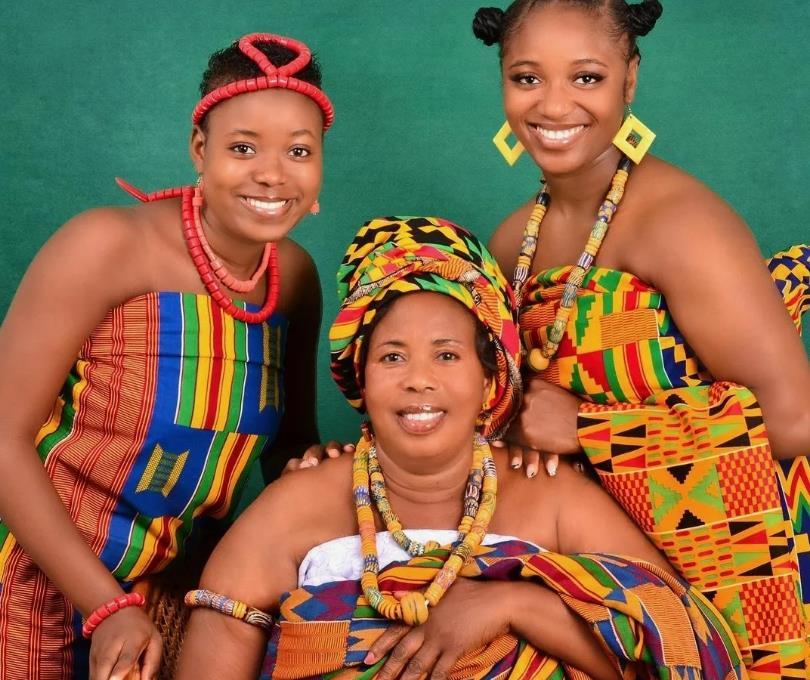

Exercise: Rewriting the Women’s Stories

Draw an organogram
Draw an organogram of men and women in various positions in your organization, highlighting their roles in different colours for men and women.
Write down the story
Write down the story of one of the women in the organization. Include the type of job, family role, number of children she’s educating, health situation, and the woman's wishes to improve her position, working conditions, and family life.
Create a checklist
Create a checklist of what needs to change to rewrite the story to a better one (you can ask members of the organization, both men and women, to contribute).
Identify & prioritize
Identify and prioritize the lowhanging fruits of change to improve the current organization (and the needs to enable the change maybe education, legislation, business support, and management decisions).
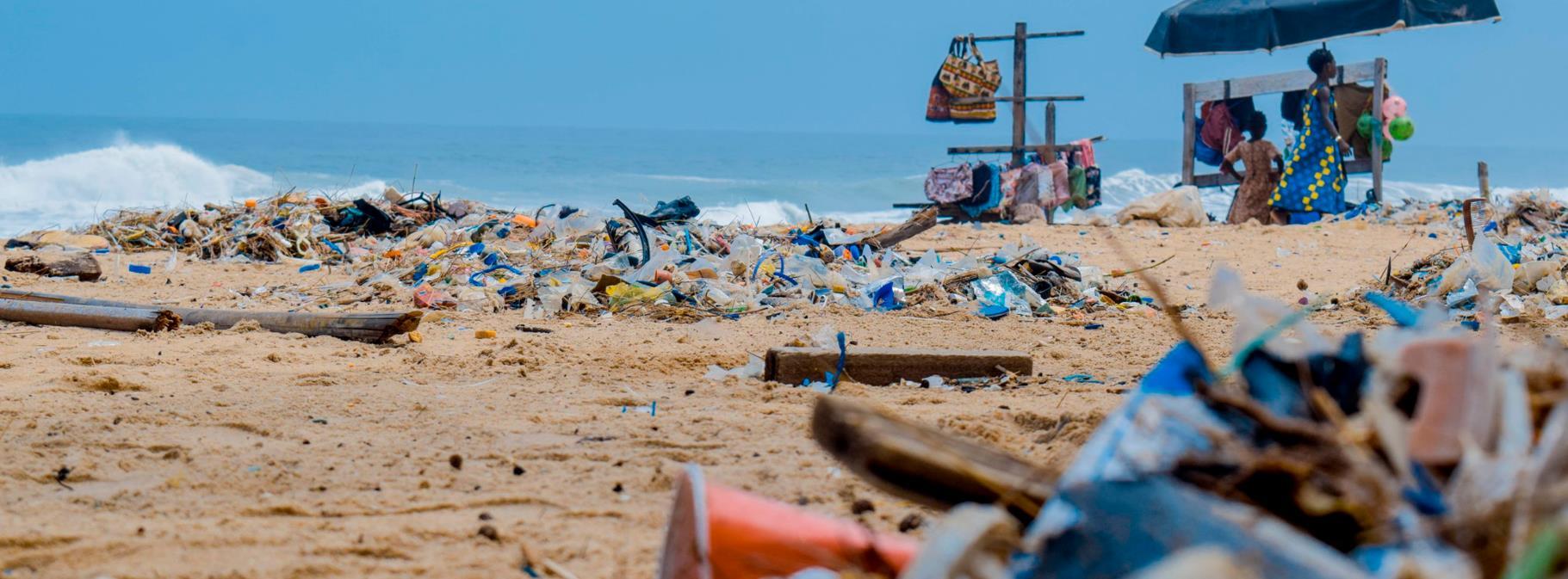
0.5 kg of waste per capita is generated daily in Kenya. In Mombasa County, 2,200 metric tonnes of waste are generated daily, primarily organic waste, in addition to minor measures of glass, paper, metal, and others.
Kenya’s Sustainable Waste Management Policy 2019 promotes an integrated waste reduction and resource management approach.
Diagram 10 Mombasa’s Waste in Numbers


It outlines a hierarchy of actions to extract total value from resources, conserve energy, prevent greenhouse gas emissions, and create new jobs in green entrepreneurship, benefiting men and women across the forty-seven counties, including Mombasa.
The policy emphasizes the application of a waste hierarchy and circular economy model for managing waste in Kenya towards a zerowaste economy.


2,200 m.t. 60% 9% to 15% of waste are generated daily of the waste generated is organic are plastic divisions



Plastic divisions represent around 9% to 15% of the complete metropolitan waste in Kenya. According to the Kenya Plastics Pact (KPP), more or less than 10% of plastic is recycled, with the remainder being landfilled or incinerated –or, in the worst-case scenario, ending up in the environment. In a circular economy, KPP illustrates the ideal plastic waste flow, which involves all value chain actors, including the informal waste pickers/collectors.
Unfortunately, due to unsustainable waste management practices, most of the waste in Mombasa and across the country ends up in open landfills and dumping sites and, as a result, finds its way to the ocean

Recycling infrastructure in Kenya comprises private companies that access waste through market mechanisms and convert it into secondary materials that can feed into new production processes.
It is, therefore, crucial to ensure gender inclusion in private waste management companies, creating equal opportunities for women and men.
Baus Taka Enterprise
Ocean Cause Kenya
Project MILA
Waste Management Technology www.baustaka.co.ke
Community Engagement x.com/Oceancauseke
Waste Management shorturl.at/bb2YI
WWF Kenya NGO www.wwfkenya.org
Planet Safi
Community Engagement N/A
Pwani Circular Economy Association Circular Economy x.com/Pwanicircular1
EcoWorld Recycling Recycling Ww.ecoworldrecycling.co.ke
County Government Policy & Governance Web.mombasa.go.ke
Hand In Hand NGO handinhand-ea.org
Kenya Red Cross Society, Mombasa Chapter Empowerment Programs www.redcross.or.ke
SwahiliPot Hub Art www.swahilipothub.co.ke
Afya Duara
Suluhisho CBO
Organic waste Management to Fertilizer shorturl.at/MsEJf
Community Engagement Shorturl.at/f0F2n
Kenya Coat Tourism Association (KCTA) Tourism kcta.co.ke
Tamarind Hotel Hospitality tamarind.co.ke/tamarind-mombasa
Bamburi Lafarge Eco System
Technical University of Mombasa
Alliance Francaise
Close The Gap
Eco Systems & Biodiversity www.lafarge.co.ke/lafarge-ecosystems
Education & Awareness www.tum.ac.ke
Education & Advocacy afkenya.org
E-waste Management www.close-the-gap.org
ROKA Bags Sustainable Fashion/Reusing rokabagsafrica.com
From our observations, women are often underrepresented in leadership roles and face barriers to entry into specific waste management sectors. Occupational health and safety concerns also disproportionately affect women, particularly in informal waste collection and recycling activities where they may face higher risks of injury or exposure to hazardous materials; thus, their roles are often limited in comparison to their male counterparts. Furthermore, women's unpaid or underpaid work in waste management, such as informal recycling and waste picking, may not be recognized or valued, exacerbating economic inequalities.
James Odongo – CEO, Kenya Extended Producer Responsibility Organization (KEPRO)
Like many other cities in developing countries, Mombasa still faces grave waste management challenges despite its trade and tourism status.
With a population of 1.2M people, 79.5% of the population consists of youth who primarily reside in low-income areas.
Informal settlement areas are often left out in infrastructural development, and instead, most of these areas harbour or are next to landfills and dumping sites.
This poses health risks for the dwellers in these areas. As cities continue to experience high rates of urbanization and economic growth, an increase in digital technologies, and an increased population due to trade and climate-related migration, the challenge of waste management will continue to pose a problem.
In recent years, increased cases of waterborne diseases have been observed in these areas caused by the lack of access to water and low levels of sanitation.
As a result, women have remained at the forefront of waste management in Mombasa, being the first to interact with household waste. Unfortunately, the critical role of women in waste management is far from appreciated, and gender disparities and biases are prevalent across various aspects of waste management. Women are often overrepresented in informal waste collection, engaging in physically demanding work with lower pay and fewer protections compared to men.
In our survey with the different respondents, we gathered data showing that 83% of participants felt that men receive a higher wage than women in the waste management sector. In comparison, only 15% did not agree.
15
Formal Waste Collectors
Informal Waste Collectors
Recycling
Environmental Engineers
Waste Collection Truck
Drivers and Helpers
Junk Shops Attendants

16
Formal Waste Collectors
Informal Waste Collectors
Recycling
Waste Collection Truck Drivers and Helpers
Mechanics
The survey found that women are often found in occupations that include recycling at 30%, upcycling and informal waste collection at 19%, respectively, attending junk shops at 14%, and formal waste collection at 13%.

17
On the other hand, their male counterparts are often in waste collection truck driving and helping at 49%; formal waste collection and environmental engineering at 11%, respectively; mechanics and recycling at 10%, respectively; and informal waste collection at 9%
Gender Role in Household Waste Management: Do Men and Women

Most participants, 70%, believed that men sometimes perform different roles than women in household waste management, while 25% felt that this was always the case.
Gender-based disparities and biases are present in the entire waste value chain, affecting both formal and informal sectors worldwide. Women, who often dominate the informal workforce, experience lower pay, unsafe working conditions, and limited opportunities to advance compared to their male counterparts in waste collection.
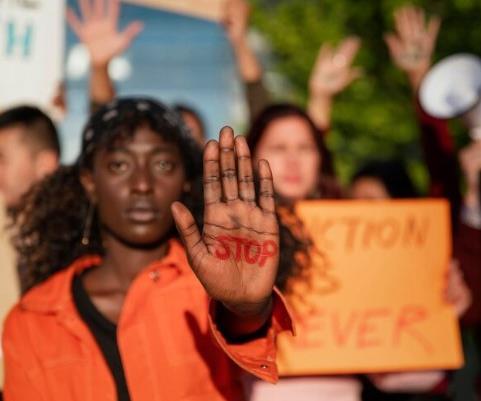
In Mombasa County, especially in the Muslim community, women are not allowed to mix with men; this may hinder the engagement of such women in environments where males are. Furthermore, women are required to take care of household duties and children and, therefore, are not considered suitable for the jobs.
As a result, most companies that are male-dominated prefer to hire men over women in our community.

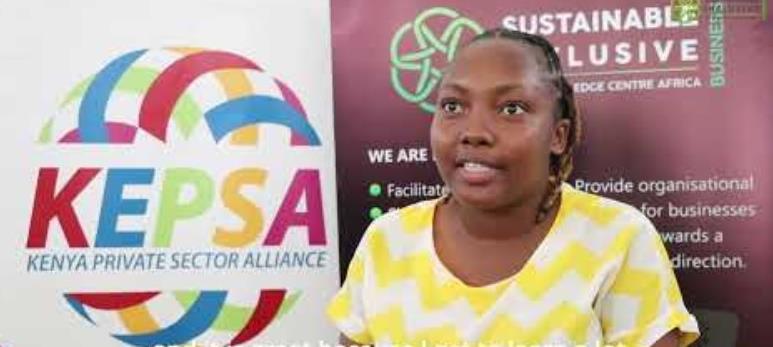
A sad tale illustrates the deep-seated gender biases that persist in many societies today. Margaret Mutuku, the Community Development Officer at Baus Taka Enterprise, recounts a tale from her school days. In this story, a girl consistently outperforms a boy academically. Rather than celebrating the girl's achievements, the boy is punished because the community believes it is unacceptable for a girl to surpass a boy. This story highlights the enduring belief that girls should not excel beyond their male counterparts, a sentiment that still affects women today, especially in Coastal communities.
Margaret Mutuku finds immense satisfaction in her role at Baus Taka Enterprise, a waste management company. Her job allows her to engage with formal and informal sectors, providing valuable insights and experiences. However, despite her fulfillment, she remains troubled by the retrogressive cultural norms that hinder women's progress. These norms often dictate what roles women can and cannot pursue, stifling their potential and ambitions.
She notes that, despite these societal barriers, women continuously strive to overcome them. The story of the girl and the boy is not an isolated incident but a reflection of a broader, ongoing issue. Such instances discourage women from entering certain fields and contribute to an environment where men feel entitled to suppress women's voices and achievements.
One prevalent societal norm is the belief that certain jobs are exclusively for men. Women in traditionally male-dominated roles, such as waste management, often face astonishment and skepticism. Margaret shares that when women introduce themselves as waste managers, they frequently receive surprise reactions and remarks like, "Wow, and you are a woman?" These responses underscore the inescapable nature of gender stereotypes.
Margaret firmly believes that achieving gender equality and fairness requires confronting and dismantling these retrogressive cultural norms. By challenging these outdated beliefs, society can create an environment where women and men can pursue their passions and talents without prejudice. Addressing these issues urgently is paramount for fostering a more equitable and just world.
Women play an important role in waste management because they are the primary waste handlers at its source Their involvement in the informal sector gives them a better understanding of household waste. However, their participation in the waste value chain is still limited due to cultural and social norms.
Additionally, they often work in hazardous conditions without protective gear. Below is a breakdown of the challenges at each waste management value chain stage.
Did you know that women are usually the first ones to deal with waste at the household level? This important responsibility often goes unnoticed and unappreciated, yet actions such as separating waste at source are critical in responsibly managing waste and creating a more sustainable future for all.
Women in waste collection often face hazardous working conditions, a lack of protective gear, and inadequate sanitation facilities. There is also a lack of awareness of sustainable waste management models coupled with insufficient waste management infrastructure. Many women lack knowledge of practices like source segregation, which can increase the value of materials. Additionally, gender stereotypes lead to discrimination in hiring, promotions, and pay, making it challenging for women to balance their work responsibilities with caregiving duties.
Sorting –disposing of
Waste Generation Collection Washing
The sorting and processing stages reveal inequities, as men tend to occupy higher-skilled roles, while women are relegated to labour-intensive or informal tasks. Additionally, entrepreneurial opportunities within waste management tend to favour men due to better access to capital and networks. Gender biases further influence policy decisions and resource allocation, which does not address these disparities.
Women who wash waste items for recycling face challenges such as health risks from handling harmful materials without proper protective gear, safety concerns due to unregulated working conditions, low wages, and social humiliation associated with their work.
Selling
Accessing formal markets is one of the challenges that women who sell waste items face daily. Many women in waste selling have little to no formal education, which can impact their ability to negotiate better terms, access information, or expand their business activities compared to their male counterparts in the waste supply chain. In addition, informal waste-selling activities may operate outside legal frameworks, resulting in women being taken advantage of and lower profits for their efforts. Women selling items collected from waste often lack access to resources such as financial services, business training, or healthcare facilities needed to improve their economic and social well-being.
Recycling
Like the other stages, the recycling stage also reveals inequities, as women typically earn low wages, have limited job opportunities, and often face harassment from male colleagues or supervisors. Many women lack formal training and education in waste recycling techniques, limiting their ability to advance in the industry or access higher-paying positions. Women in recycling are often exposed to harmful substances such as chemicals, fumes, and contaminated materials, which pose significant health risks.
The upcycling stage involves creatively transforming waste materials into higher-value products. Like in any other stage, women here encounter challenges such as securing a consistent supply of quality waste materials and acquiring technical skills in design, manufacturing, and material handling. Access to training programs and workshops to enhance these skills can be inadequate. In addition, finding markets for upcycled products can be difficult without broad networks or resources. Capital for equipment, materials, and marketing is necessary for starting and growing upcycling businesses. However, accessing funding can be challenging for women entrepreneurs who do not have collateral or security to be trusted by lenders.

Participants’ selection of statements most applicable to them.
lam unable to grow into a formal business.
It is difficult for me to find formal employment in waste management.
I have no access to safety equipment.
Working in the waste sector lowers my social status.

Employers prefer male employees.
l am vulnerable to harassment or abuse.
I get paid less than men in similar positions.
I lack access to toilets during collection, which is even more difficult during menstruation or pregnancy.
Women in the informal waste sector significantly contribute to waste management in fragile ecosystems and unsanitary conditions.

Despite their contribution, their importance is not adequately recognized, leading to challenges in accessing medical cover, protective gear, and credit facilities. However, this toolkit presents a turning point in addressing the marginalization and exclusion of women in the informal sector.
Most informal waste workers in Kenya lack formal training and struggle with complex waste management concepts.
To better engage informal sector actors in Mombasa, information should be disseminated in accessible formats and channels and local languages such as Kiswahili.

02
For example, the United Nations Environment Programme (UNEP) is taking center stage in repackaging information in the local language. UNEP launched its Swahili version of the website to provide a platform for local communities in SwahiliSpeaking nations to learn more about environmental issues.
Training and capacity building
Women in the informal waste sector have valuable knowledge about the economic value of different waste components. However, they need training on their roles and responsibilities. The training should focus on increasing waste collection and recycling and educating the public on sound waste management.
It will also provide a platform for providing feedback to producers to improve product and packaging redesign. Women and other stakeholders in the waste management can leverage on the current opportunities by organizations like KEPSA to access basic information and mentorship about waste management and potential benefits.
Thus, government agencies, the private sector, and civil society can strengthen the ongoing efforts of repackaging circular economy and waste management information in the local language to ensure that women in local communities comprehend the underlying concepts and their roles in the just transition to a green economy.
You can access the UN website in Swahili here: https://www.unep.org/
To receive personalized training, you can contact the Sustainable Inclusive Business Kenya team via sustainableinclusivebusiness.or g.
Women should also be empowered to know their rights as stipulated in the constitution, labour laws, and employment contracts. This will enhance conflict resolution among employees.
03

Kenyan policies have followed a top-down approach, where elite groups or higher authorities at an administrative level design policy to be implemented at the grassroots level.

04
This leads to a chaotic process that gives the term ‘public participation’ a different meaning, excluding the informal waste players from contributing to decisionmaking.
Waste pickers face hazardous conditions that can cause diseases and are also threatened by some of their male counterparts. To ensure their safety, provide Personal Protective Equipment (PPE) such as goggles, gowns, face shields, gloves, masks, specialized shoes, and offer security where possible. Train them on the correct usage of PPEs and track their progress.

05
Provide access to health insurance and social benefits. Women-led groups can be contracted to recover and recycle waste at the end- ofproduct life cycle. This recquires that their working conditions are improved through provision of PPEs.
Women-led groups can access PPEs and health cover through county government programms, NGOs and
The informal waste value chain faces difficulties accessing financing due to negative perceptions and a lack of legal recognition.
Financial lending institutions view the sector as unattractive, and most actors in Kenya fall under the lowincome bracket, limiting their access to financing.
Encourage their participation to ensure fair compensation and strengthen their understanding of their roles in policy implementation.
Community- based organizations working closely with informal workers, microfinance institutions and microenterprise development programs providing support to informal workers, private sector CSR initiatives especially those in the waste management or recycling industry, and establishing peer support networks among themselves to purchase affordable PPEs.
The government and private sector can provide linkage to micro-credits and other financial benefits, such as tax rebates and exemptions, beyond providing fair and equal pay for their daily work.

In Kenya, the informal waste sector lacks legal recognition and licensing. Stakeholders, including county governments, must continuously identify informal waste collectors/ pickers and train them on the benefits of registering and acquiring licenses. Registering these groups creates a database for

producers and PROs to engage waste pickers. Legal recognition and registration also provide access to financing and other incentives to improve services and expand operations.
For instance, players like Mr Green and Takataka Solutions are facilitating the transition of informal waste pickers by
registering them as formal waste service providers within the minimum wage provision in Kenya. Licensing for the waste management service providers, transporters, incinerators and recyclers can be done through the NEMA Website, at a local NEMA office, or through a local CBO.
The informal waste sector plays a significant role in waste management in Kenya. Integrating them into formal waste management systems through government registration, contracting, and infrastructure strengthening can improve their compensation and income, leading to social and economic stability and saving county governments resources for waste management. Across the globe, countries have begun streamlining and integrating the informal waste sector stakeholders in the formal waste management sector.
For example, in India, Saahas Zero Waste, an informal waste management company, is instrumental in managing dry waste. The company is underpinned in social inclusion projects that seeks to provide entrepreneurial opportunities to the informal waste sector and integrate them into the formal waste management value chain.
In addition, a Dutch Indian company, Sweepsmart, provides state-of-the-art waste management solutions informed by European best practices and developing
countries’ waste management demands. The company utilizes a Europe-meetslocal approach that includes a package of hardware and information technologies, processes, and training to manage the collection, segregation, and recycling of waste. The international efforts of integrating the informal waste sector into formal waste management are major reference points for the private sector and WSPs in Kenya to explore ways of enlisting the bottom-of-pyramid waste handlers into formal waste management practices.

Collaboration and partnerships are crucial for achieving the sustainable development agenda. Integrating informal waste pickers, including women, requires mobilizing and coordinating actors from different sectors. For instance, brands and producers can tap into the opportunities of partnering
Collaborations and Partnerships with the informal waste sector actors to raise awareness about circularity and responsible consumption and production patterns. Informal waste collectors are in constant touch with local communities and thus position themselves as critical agents to cascade down the information to the public.
Moreover, producers and PROs can institute collective action with the informal waste sector to develop waste management technologies informed by grassroots initiatives and localized knowledge.





Conduct a short survey in your organization and compare the data to the known data in the toolkit. Is the inclusion and involvement of women higher and better? Are the challenges faced by the women in your organization like those highlighted in the toolkit?

Identify and map out possible solutions to close the gender gaps in short and long timelines

01 02 03 04 05 06

Set targets and ambitions to achieve, using the strategies for inclusion provided in the toolkit as a guideline
Monitor and evaluate progress and provide updates and actions for continuous improvement


In the bustling city of Mombasa, Nusra Juria is making waves as the founder of Project MILA, a pioneering venture in organic waste management. Her innovative enterprise transforms organic waste into valuable resources, demonstrating a sustainable approach to tackling environmental challenges. Among the notable products from her project are frass, a natural fertilizer highly valued by farmers, and black soldier flies, which have a myriad of applications, from pest control to nutritional supplements for animals like cows and dogs. Nusra's ambitions also stretch into the cosmetic industry, where she envisions harnessing the potential of black soldier flies to produce makeup, lipsticks, and other beauty products.
The path to establishing Project MILA faced numerous obstacles, particularly in its early stages. Nusra had to navigate the daunting task of securing funding while juggling her academic commitments. She initially funded the project from her savings and started small, collecting household waste from just two houses and one vendor.
However, the most significant challenge was communicating her vision to the local community. Nusra vividly remembers a man questioning why a 'pretty girl' like her would involve herself in something as 'dirty' as waste management, even suggesting that there might be 'financial problems at home' driving her to such 'unwelcome' work for a woman in her community.
Despite these disparaging comments and prevalent societal attitudes, Nusra stood firm, propelled by her passion and the unwavering support of her mentor. The pressures of developing Project MILA were immense, often leading to periods of deep depression. Nusra's mother, concerned for her daughter's well-being, once urged her to abandon the project, fearing it was a futile endeavor.
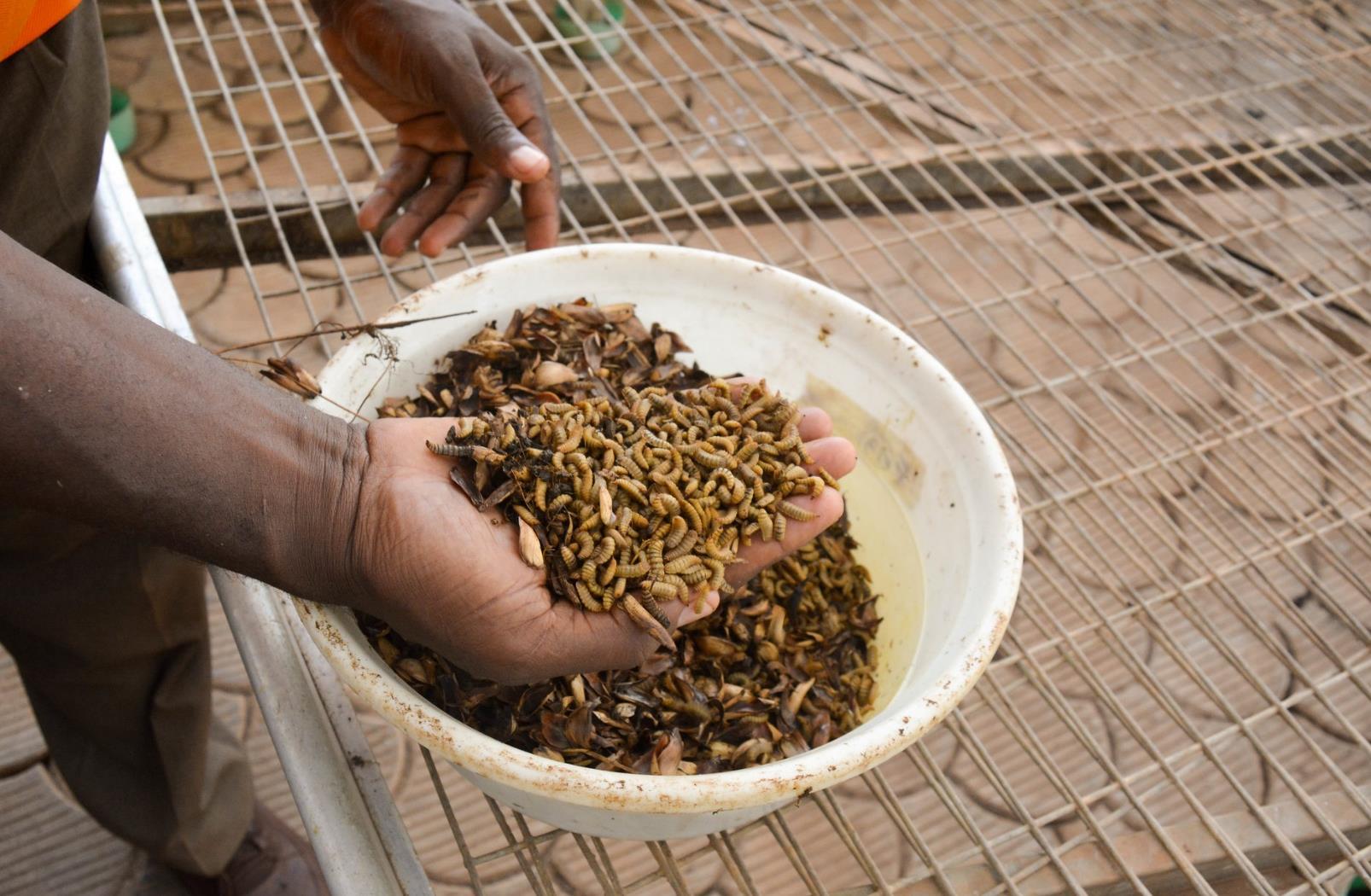
Struggling to see a path forward and lacking sufficient funding, Nusra was on the brink of despair. It was during this low point that she stumbled upon the IRIS Prize Project online, a discovery that marked a pivotal moment in her journey after receiving a crucial funding grant. For Nusra, waste is far from mere trash; it represents a treasure trove of untapped potential. She believes in unlocking this potential to benefit the environment and the community by converting waste into nutrients and frass. As a young entrepreneur, she is a beacon of empowerment for her peers and the wider community, regardless of age or gender.
Her commitment extends to uplifting youth, women, men, and even older people. With a background in Public Health, Nusra also provides health education to the elderly, promoting disease prevention as a proactive measure before medical intervention arises. Her holistic approach addresses waste management and encompasses broader health and wellness initiatives within her community.
Nusria says the workshop on gender mainstreaming by Sustainable Inclusive Business under KEPSA has been invaluable. By providing empowerment opportunities for young women, she believes we can positively influence their lives and families, potentially delaying early marriages, another backward culture in her community.
In a world where gender biases and societal norms often limit women's potential, Nusra Juria's story is a testament to the power of determination, resilience, and passion. She demonstrates how one woman’s unwavering commitment can overcome societal biases and transform challenges into opportunities through Project MILA.
Her vision extends beyond immediate achievements, aiming to create a sustainable and inclusive environment where waste is valued as a resource, and every community member is empowered to contribute to and benefit from this transformation. It is also about redefining possibilities and inspiring future generations to pursue their ambitions, regardless of their obstacles.
Kenya is among the pioneering African countries to establish legislation and policies aimed at enhancing women’s involvement in climate change initiatives.
Aligned with the Kenyan Constitution, which prioritizes climate change and gender equity, Kenya has made significant progress in advancing both agendas.

The Constitution of Kenya 2010 emphasizes fundamental rights, gender equality, and non-discrimination. Article 10 outlines national values, including equality and inclusiveness.

The National Business Agenda (NBA) III (2018-2022): The National Business Agenda III identifies enablers of economic prosperity, such as investing in education, health, and women in business

The Employment Act (2007): It promotes equal employment opportunities, eliminates discrimination, and safeguards against sexual harassment at work. Employers with 20+ employees must issue a policy statement on sexual harassment after consulting with their employees or representatives.

For this toolkit, we refer to the normative frameworks provided in the Private Sector Gender Mainstreaming Policy developed by the Kenya Private Sector Alliance (KEPSA) as follows.
Vision 2030: Kenya’s Vision 2030 emphasizes gender mainstreaming in policies, plans, and programs to ensure gender equality.

The National Policy on Gender and Development: The Kenyan Government has taken another step towards gender equality with a policy that aims to empower women and vulnerable groups for sustainable development.

The Extended Producer Responsibility (EPR) Regulation: A policy approach or tool that upholds the PolluterPays Principles, in which producers or product manufacturers bear a significant financial or organizational responsibility for a product introduced into the market throughout its lifecycle. Kenya is implementing EPR regulations derived from Section 13 of the National Sustainable Waste Management Act 2022.
The EPR regulations in Kenya mandate producers to join individual or collective compliance schemes to take responsibility for the entire life cycle of products they introduce into the market.
Producers can directly, or through their Producer Responsibility Organization (PRO), engage licensed waste service providers (WSPs) to manage waste emanating from the products they introduce into the market. WSPs will receive a fee from the producers for their services in managing the waste.
In return, the WSPs must provide the producers with data on volumes of products managed under their EPR system and infrastructure. Waste management involves segregation, recovery, transport, recycling, reuse, and disposal. Recognizing and including the Informal Waste and Recovery Sector (IWRS), which includes a significant percentage of women in waste management, is crucial to achieving a sustainable waste management system. The diagram below represents waste flow, monetary compensation, and social benefits in an EPR system.
18 Inclusion of the Informal Waste Sector in the EPR Implementation Model in Kenya

Waste source (Companies)
Organic waste moved to composting ( Not part of EPR)


Recyclables

Individual EPR Scheme (Brands and companies)

Awareness on EPR & sustainable waste management
Monetary compensation, provision of PPEs, occupational & safety training

Landfill

MANDATORY WASTE MANAGEMENT
REGULATION UNDER THE EPR
Collective EPR Scheme-Producer Responsibility Organisation (PRO) (A collection of many companies to form an industry-led waste management entity)
Monetary compensation, provision of PPEs, occupational & safety training
Key Flow of waste under EPR
Flow of monetary compensation and social benefits
Awareness on EPR and sustainablele waste management



Waste Service Providers (WSPs):
• County governments (transportation and provision of MRFs and disposal sites)
• NEMA-licensed waste handlers (collection, sorting, transport and recycling)

Informal waste and recovery sector Street/dumpsite waste picker/yard owners
Diagramlevel.

Regardless of the impressive legislative landscape, over 50% of respondents still feel that the current policies have inadequately addressed gender issues within the waste management sector.
Case Study: Lucy Ngorongo, passionate enough to get dirty to keep the environment habitable
On a chilly Friday morning, she walks into a meeting full of other business leaders, from producers to retailers, Business Membership Organizations, legal entities, and waste management value chain players. The meeting is facilitated by the Kenya Plastics Pact to address the government’s sudden notice to transition to biodegradable bags for organic waste. She is here to seek clarity for herself and thousands of other formal and informal waste managers who wish to see truly effective and 100% biodegradable options put in place. Also, she wonders what the ban would mean for her medium-sized business and others smaller than hers. After the meeting, she engages other leaders, big and small, exchanges contacts with the new ones, and exits back into the field.
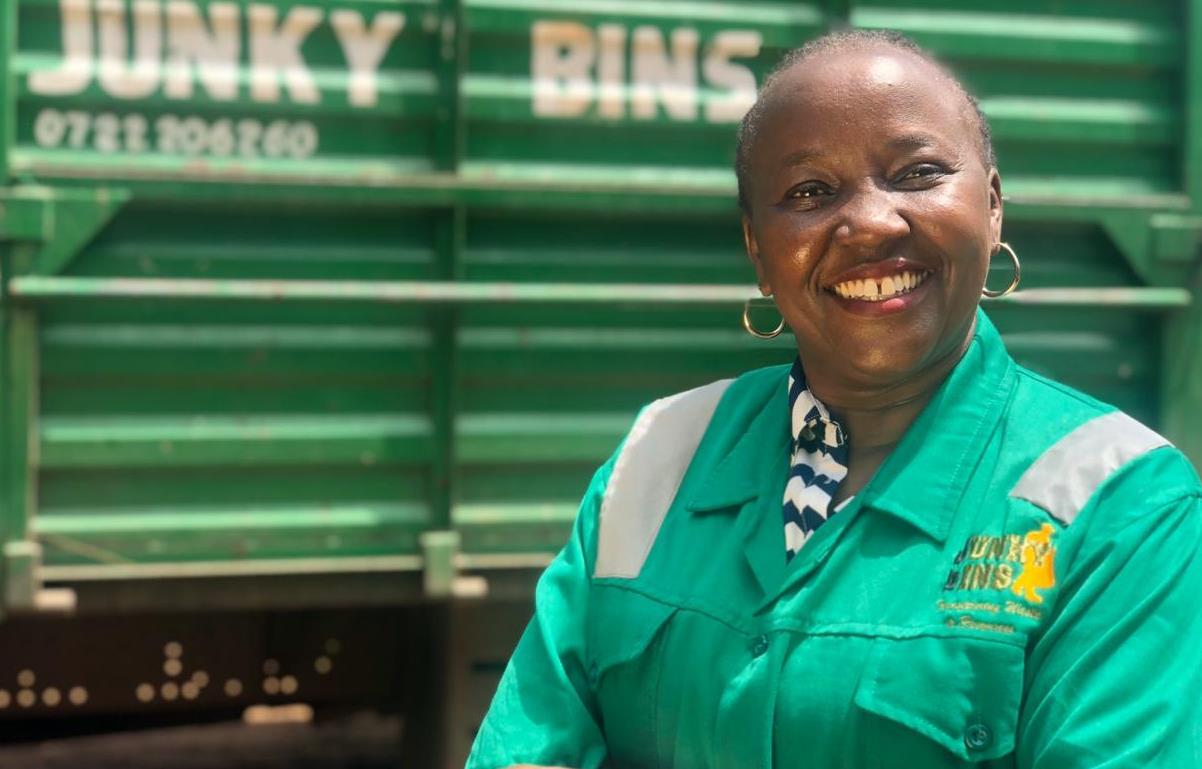
She is Lucy Ngorongo, the Founder of Junky Bins, a waste management company offering comprehensive services, including residential, commercial, hospitality, and industrial waste collection, transportation, and disposal. She strikingly balances her advocacy prowess in one day, and in another, she leads a team of men and women in collecting waste, which she otherwise refers to as “treasure hunting.”
“I only feel angry when I see waste. When I see people throwing away things we could reuse.”
These are words by Mother Teresa, which Lucy passionately quotes when speaking to us. She embodies this sentiment and fearlessly leads others toward a more sustainable and equitable future. In a country increasingly grappling with environmental challenges, she emerges as a pioneering force in waste management in Kenya. Her innovative approaches to recycling and waste reduction have garnered attention nationwide, positioning her as a leading figure in sustainable environmental practices.

One of the most immediate and serious environmental problems in Kenya is solid waste. Recycling organic waste material (bio-waste) is still limited. Lucy addresses the pressing issue of effective waste management with a unique project focusing on recycling organic waste using the Black Soldier Fly (BSF). This project collects organic waste daily from households, hotels, and institutions, converting it into valuable resources. The BSF larvae help in biowaste conversion, and the harvested larvae are used as a protein source for poultry, pig, and fish feeds. The residue from this process is further utilized to produce organic manure and fertilizer. The BSF project is a sustainable and cost-effective alternative protein source for animal feeds in Kenya.
As a woman-led and founded organization, Lucy says, gender mainstreaming is integral to Junky Bins' operations. Despite the field's traditionally masculine nature, the company actively empowers women within its workforce. For instance, four women hold key positions in the office, including two on the board of directors and two in business support roles. Additionally, Junky Bins employs women to assist in moderating waste collection from households and aims to employ more women at its material recovery facility (MRF). By focusing on empowering women at the household level to enhance waste segregation, Junky Bins recognizes and leverages the critical role women play as the first handlers of waste.
Lucy Ngorongo's dedication to waste management reflects a broader commitment to environmental sustainability and gender equality. Her work with Junky Bins not only addresses a significant environmental challenge but also champions the inclusion and empowerment of women in an industry traditionally dominated by men. Her innovative and inclusive approach is an inspiration for current and future changemakers in environmental conservation and beyond.


Please tick the relevant box for your organization/Company (example) Is it applicable to your case? Are you implementing? Do you require guidance to implement?
Gender-responsive strategies within organizations and businesses. ✓ X ✓
Inclusive work environments.
Equal access to financing and income generation opportunities.
Access to health and hygiene for all regardless of gender.
Zero-tolerance to gender-Based Violence and Harassment.
Equal training, skills development, and awareness programs.
Promoting leadership roles for both men and women.
Flexible work arrangements for mothers.
Establish gender mainstreaming champions at the grassroots level.
Effective implementation of policies by the National and County Governments.
Are you a registered group, CBO, SME?
Improving gender equality in an organization requires a commitment to continuous improvement. Feedback mechanisms play an essential role in this process by providing awareness of what works well and what needs to be changed.
Here are some helpful feedback mechanisms that can help with continuous improvement and learning in companies that want to improve gender equality.

Zero Gender Pay Gap
Access to Financial Services
Measure the difference in earnings between men and women for similar work.
Measure women's access to financial services like banking, credit, and insurance to assess economic empowerment.
Representation in Leadership Track the proportion of women in leadership positions across the waste management sector in informal and formal settings, including government, businesses, and nonprofit organizations.
Access to Healthcare
Safe Working Environment
Assess women's access to quality healthcare services, including health cover, sanitary products, reproductive health services, maternal care, and access to PPEs.
Measure the safety of women and men waste pickers against hazardous conditions that can cause diseases and harm.
Gender-based Violence Monitor rates of genderbased violence, including domestic violence, sexual assault, and harassment, to assess progress in creating safer environments for women.
Increased Awareness Creation
A decreasing pay gap indicates progress towards gender equality.
Women in waste management have access to financing opportunities and credit by, for instance, creating table-banking initiatives (Chamas).
50/50 representation in leadership positions.
Interviews
Regular benchmarking
Interviews
Ongoing dialogues
– 8 years Gender audits Regular benchmarking
Ongoing dialogues
Health coverage such as NHIF and social benefits for themselves and their families. 1 – 3 years Surveys and feedback sessions
Ongoing dialogue
Availability of Personal Protective Equipment (PPE), knowledge of correctly using them and effectively using the PPEs. 1 – 3 years Surveys and feedback sessions
Zero tolerance and cases of gender-based violence. 1 – 3 years Surveys
Ongoing dialogue
Monitor the women’s understanding of waste management and gender mainstreaming concepts. Enrolment and high completion rates of women in training programs. 2 – 6 years Surveys and feedback sessions
Ongoing dialogue Regular performance reviews
Partnerships between government agencies, local community members, civil society organizations, and private sector actors will help achieve a better future It will enhance gender mainstreaming efforts in the waste sector through capacity building, collective data assessments to understand the dynamics of gender issues in relation to waste management, and collective resource mobilization toward environmental programs. At the Kenya Red Cross Society, we have established internal policies for mainstreaming gender at all levels and have partnered with organizations like KEPSA to jointly host waste management workshops and programs for men and women dealing with waste management. We also give them equal access to waste management infrastructures such as collection and recycling points
Mohamed Bahero, Resilient Community Champion at the Kenya Red Cross Society, Mombasa Chapter.
Communicating about gender mainstreaming within your organization: Example


We promote zerodiscrimination based on gender identity or expression.


We include everyone by recognizing and addressing the different needs, experiences, and realities of people of all genders.


We aim to achieve gender equity & equality by addressing power imbalances and ensuring that all individuals, regardless of gender, have equal opportunities, rights, and access to resources.


We challenge existing structures, norms, and practices that spread gender inequalities.


We empower individuals and groups, particularly women and marginalized genders, by promoting their participation in decisionmaking processes and expanding their opportunities
Use an inclusive language
Avoid gender-specific terms like “he” or “she” when referring to hypothetical individuals. Instead, use gender-neutral language like “they” or “participants.”
Provide diverse examples
Use examples and case studies that feature individuals of different genders, backgrounds, and experiences to ensure representation and inclusivity.
Avoid stereotypes
Be mindful of stereotypes related to gender roles and capabilities. Encourage participants to challenge and debunk stereotypes within the waste management sector.
Acknowledge diverse perspectives
Recognize that individuals may have different experiences and perspectives based on their gender identity and backgrounds Encourage open dialogue and respect for diverse viewpoints.
Create an inclusive environment
Foster a supportive and respectful atmosphere where all participants feel valued and heard, regardless of their gender identity
Offer gender-neutral facilities
Ensure that restroom facilities and other amenities are inclusive and accessible to individuals of all gender identities.
Provide resources and support
Offer resources and support services that address the unique needs and challenges faced by individuals of different gender identities within the waste management sector.
Train the trainers
Provide training to trainers on the importance of gender neutrality and inclusivity in communication. Equip them with the knowledge and tools to create inclusive training environments.
Seek feedback
Encourage participants to provide feedback on the training sessions, including suggestions for improving gender neutrality and inclusivity in communication
Continuously educate
Stay informed about best practices for gender-neutral communication & continue to educate yourself and others on issues related to gender diversity & inclusion in the waste management sector.
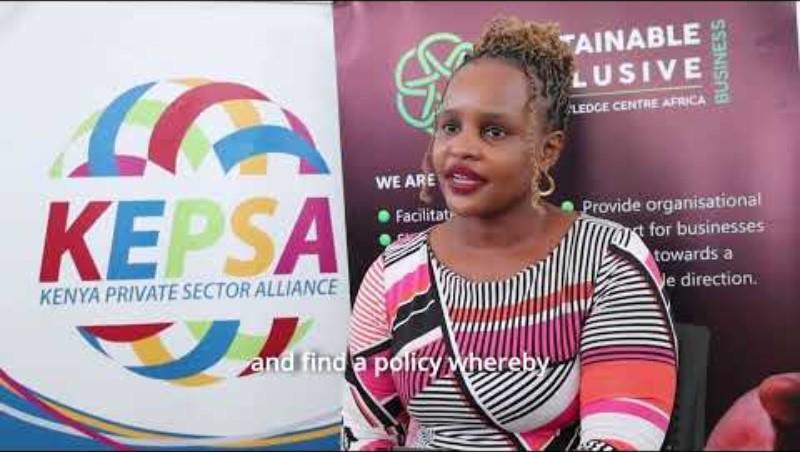
Dorcas Rottok leads a transformative movement that weaves climate action, gender equality, and educational advancement through her organization, Ocean Cause Kenya. Nestled in the heart of VOK, Mombasa, she embarks on a range of initiatives that champion environmental conservation and community empowerment, underscoring the pivotal role of women in driving sustainable development.
The organization actively engages in beach clean-ups and awareness walks, highlighting the pressing need for action against environmental degradation.
She is mainly dedicated to women's empowerment in Mombasa and throughout the country. Through Ocean Cause Kenya, she spearheads several programs that aim to inspire women to achieve economic self-sufficiency and explore non-traditional avenues for income. One standout initiative educates women about the economic opportunities that can be harnessed by upcycling waste into value. She provides training on transforming plastic and coconut waste into marketable products like decorative items. The organization enables women to earn a living and recognizes their potential and contribution to environmental sustainability, thereby empowering them.
Emphasizing the importance of a collaborative approach involving the private sector and the government to achieve effective environmental conservation, she envisions a system where private sector organizations, such as the Kenya Private Sector Alliance (KEPSA), work in tandem with the county government of Mombasa to provide more awareness and incentives to women in waste management. This vision is not just about Dorcas Rottok or Ocean Cause Kenya, but it's about all of us, the private sector, the government, and the community, coming together to establish robust recycling and waste management policies and to create a sustainable future for all.
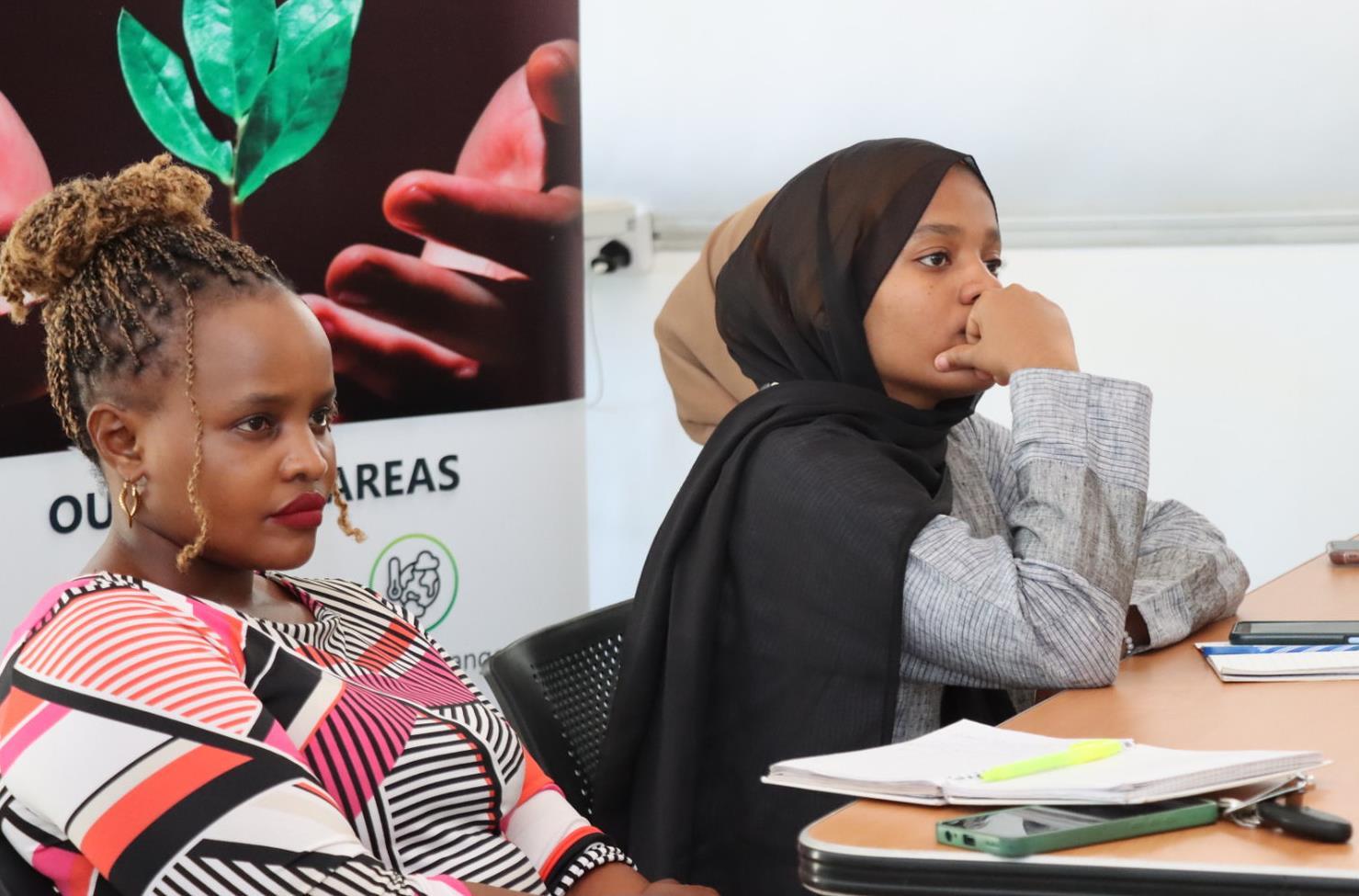
One of her proposed initiatives is the creation of collection points by producers of plastic products. These collection points would allow customers to return used plastic bottles in exchange for a monetary incentive, promoting recycling and reducing plastic waste. Such a policy could significantly enhance the recycling infrastructure and encourage responsible consumption throughout Kenya while at the same time adding value to women involved in the initiative.
Dorcas encourages women to adopt sustainable habits, such as waste segregation, as they can greatly influence their families and communities. As the primary caregivers, women can instill environmental consciousness in their children and spouses, creating a ripple effect beyond their immediate households to the communities. Dorcas shares these practices with her colleagues, promoting sustainability at work and contributing to a broader cultural shift towards environmental responsibility.
Dorcas Rottok's work with Ocean Cause Kenya is a living example of the transformative power of women-led initiatives in driving climate action and community development. Her focus on environmental conservation, education, and women's empowerment is not just impacting VOK and the broader Mombasa county. It's reshaping the landscape of these areas.
Her vision for a collaborative approach involving the private sector and the government promises a sustainable future where people and the planet can thrive. Through her unwavering commitment and innovative programs, Dorcas is empowering women to not just participate in being part of the solution but also to lead in creating a more sustainable world.
The future we want to create vs. the current situation!


Exercise: Reflecting on the future we want


Is such a future achievable or just a dream? How would a better future positively impact you?

What will it take for all of us to collectively achieve this future?

What role will you play as an individual or organization?

01 02 03 04 05 06

What potential challenges do you foresee in this journey? Write down & communicate your vision regularly.
Image by Freepik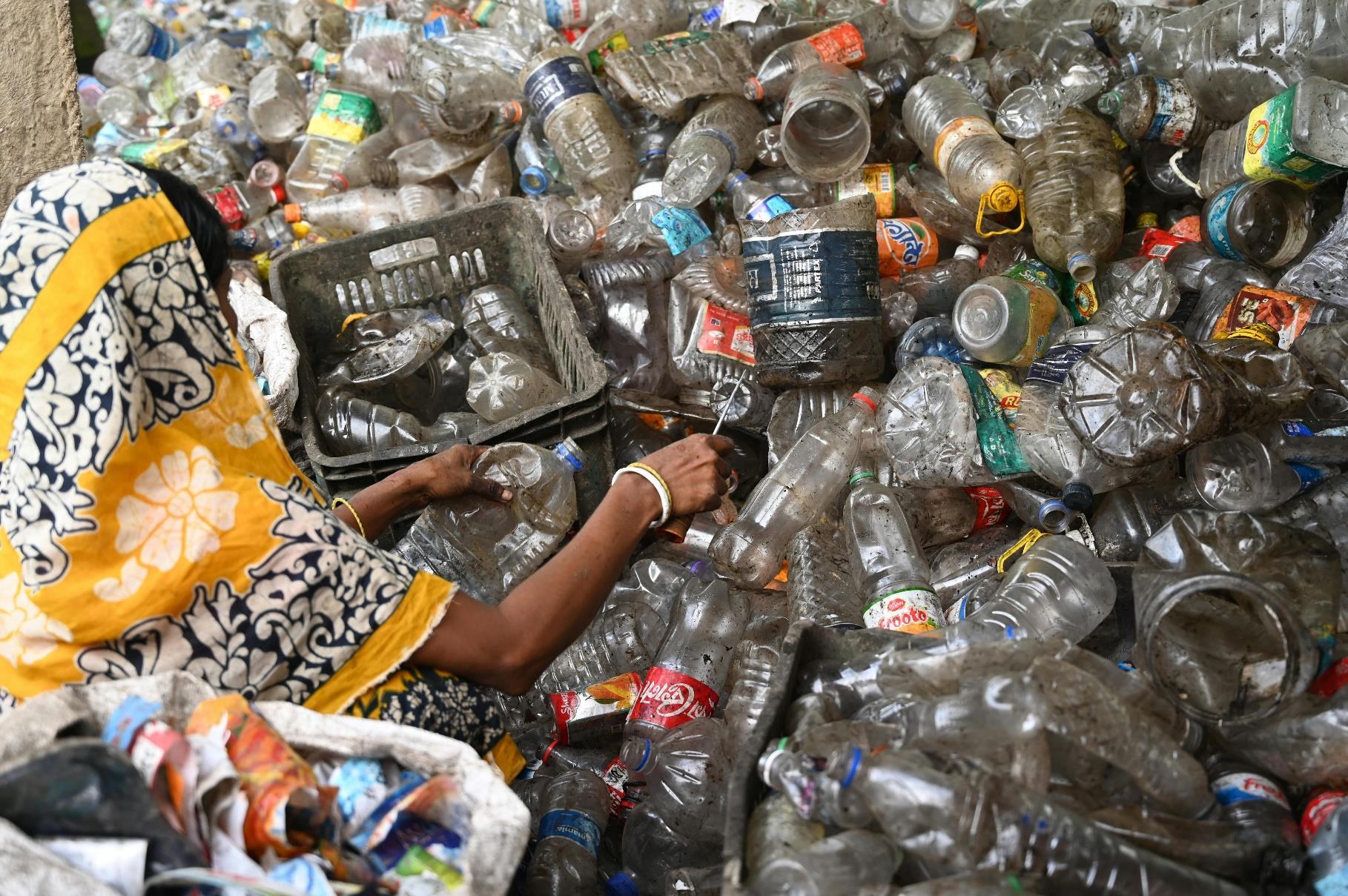
“Now that we have facts, data, and insights of other players, it is obvious that many women face these challenges. I was most surprised by the confession of genderbased sexual harassment by one of the participants.”
“Our role in waste management should not be seen as a ‘dirty woman’s job,’ but as an important contribution to our community’s wellbeing. I wish our society could change their mindset, and such training will help us a lot.”
“I realize we all still carry the old-fashioned roles into our current lives; women are still expected to fulfill all household work while working full-time.”
“Other women have inspired me by showing how much can be achieved in a few years. It is possible!”
“I am happy to know there is a law promoting separation at source (referring to the extended Producer Responsibility Regulation). Now I feel empowered to push people to comply when I go for collection.”
“Before the training, I thought I was alone facing these challenges, including being downplayed by society and my family. I am now ready to raise my voice and share these insights with people. Because we are all in this together.”
“We are strong together, so women should support, trust, and uplift each other in this space.”
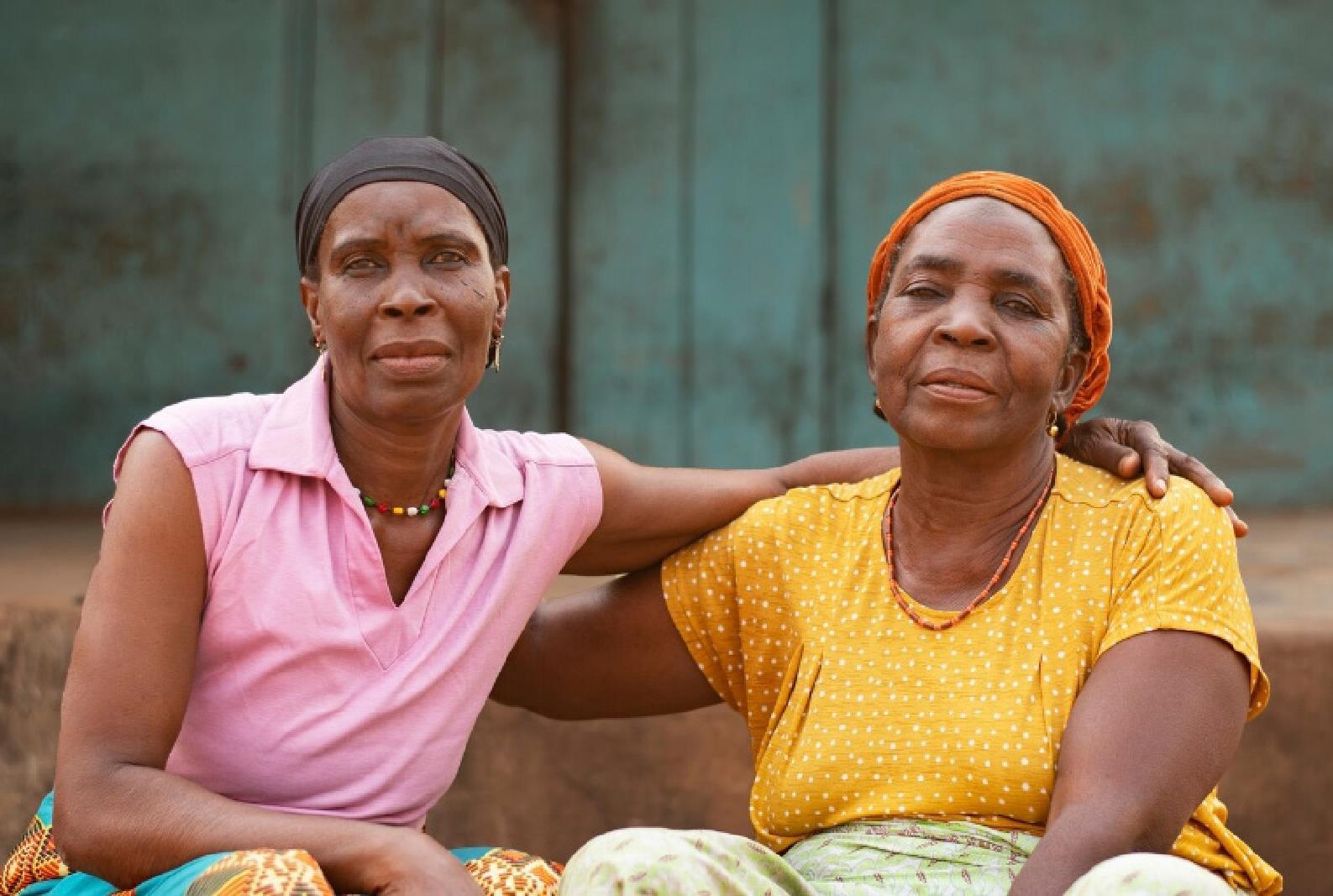
In conclusion, gender mainstreaming in the waste sector is crucial for achieving sustainable development goals. It is essential to recognize that women and men have different roles and responsibilities in waste management and that these differences need to be considered when designing policies and programs.
Businesses and all relevant public, private, and civil society stakeholders should prioritize gender equity and inclusivity in the workplace, whether in formal or informal setups.
By doing so, we can create a more diverse and respectful environment for all players in the waste management sector, regardless of gender.
By adopting gender-responsive approaches, the waste sector can become more inclusive, equitable, and effective in addressing waste management challenges. The report's key insights and recommendations can serve as a useful guide for policymakers, practitioners, and stakeholders in the waste sector to mainstream gender in their work.
This will, in turn, lead to increased productivity, better social and economic growth, women empowerment, and a more positive, sustainable waste management culture.
It’s time for us all to take action and make gender equity and inclusivity a top priority in Kenya’s waste management sector.
Benchmark
Bias
Evaluate (something) by comparison with a standard.
Inclination or prejudice for or against one person or group, especially in a way considered unfair.
Discrimination The unjust or prejudicial treatment of different categories of people, especially on the grounds of ethnicity, age, sex, or disability.
Diverse
Gender
Including or involving people from a range of different social and ethnic backgrounds and of different genders, sexual orientations, etc.
The male sex or the female sex, especially when considered with reference to social and cultural differences rather than biological ones, or one of a range of other identities that do not correspond to established ideas of male and female.
Gender based violence Violence directed against a person because of that person's gender or violence that affects persons of a particular gender disproportionately.
Gender bias
Prejudiced actions or thoughts that affect a person or a group of people based on their perceived gender.
Gender disparities Differences in women’s and men’s access to resources, status, and well-being, which usually favour men and are often institutionalised through the law, justice, and social norms.
Gender equality
Gender equity
Gender gap
The state of equal ease of access to resources and opportunities regardless of gender, including economic participation and decision-making, and the state of valuing different behaviors, aspirations, and needs equally, regardless of gender.
The process of being fair to women and men. To ensure fairness, strategies and measures must often be available to compensate for women's historical and social disadvantages, preventing women and men from operating on a level playing field.
The disparity between women and men, or boys and girls, conditions or positions in society based on gendered norms and expectations.
Gender mainstreaming The process of integrating a gender lens into all aspects of an organisation’s strategies and initiatives, as well as its culture, systems, and operations.
Gender-neutral Avoid distinguishing roles according to people's sex or gender.
Gender-sensitive To understand and consider socio-cultural norms and discriminations in order to acknowledge the different rights, roles & responsibilities of women and men in the community and the relationships between them.
Hazardous Risky; dangerous.
Marginalized (Of a person, group, or concept) treated as insignificant or peripheral.

We acknowledge the technical support by Climate KIC, Europe’s leading climate innovation agency co-funded by the European Union, and the financial support by Irish Aid towards the development of the Gender Mainstreaming Toolkit in Waste Management.
Special gratitude to Sustainable Inclusive Business Kenya Director Karin Boomsma, Kenya Private Sector Alliance Corporate Communications Manager Josephine Wawira, and TheRockGroup’s Sustainability Consultant Esther Mangiza for compiling the interactive toolkit, aligning its functionality with different stakeholders across the value chain.
Our appreciation also goes to Pracksidis Wandera, a Community Engagement Officer, for organizing the women at the grassroots for training with the toolkit and to Jeremy Kaburu, the Circular Economy Specialist, and Ebenezer Amadi, the Program Manager, for reviewing the handbook.
Further, we thank the different partners including Baus Taka Enterprises, the County Government of Mombasa, NEMA, and individuals who participated in the survey, expert interviews, and stakeholder consultations which enriched the toolkit with actual data and information.
The toolkit wouldn’t have been complete without the case studies from courageous women in Mombasa whose stories have been featured. Asanteni.
Finally, we acknowledge KEPSA Gender Specialist Ms. Lucy Mitei, for the provision of the Private Sector Gender Mainstreaming Policy
• “A Common Vision for a Circular Economy for Plastics ” Kenya Plastics Pact, Kenya Plastics Pact, 2021, kpp.or.ke/about-us/. Accessed 24 Apr 2024
• “Girls’ Education | Education | Archive - U.S. Agency for International Development.” 2017-2020.Usaid.gov, 1 Oct. 2018, 2017-2020.usaid.gov/education/girls#:~:text=More%20 girls%20in%20school%20%3D%20greater.
• Girls Not Brides. “Kenya.” Girls Not Brides, 2023
• “Keeping Girls in the Picture | UNESCO.”
• Mcelhaney, Kellie, and Sanaz Mobasseri. Women Create a Sustainable Future. 2012.
• McKinsey Global Institute. “How Advancing Women’s Equality Can Add $12 Trillion to Global Growth ” McKinsey & Company, 1 Sept. 2015
• Ministry of Environment and Forestry. THE SUSTAINABLE WASTE MANAGEMENT ACT. 12 July 2022.
• “SDG 5 – Gender Equality | KfW Development Bank.” Accessed 1 May 2024.
• The Kenya Private Sector Alliance (KEPSA). PRIVATE SECTOR GENDER MAINSTREAMING POLICY 2024 Nairobi, Kenya, The Kenya Private Sector Alliance (KEPSA).
• Tordrup, David, et al. “Economic Burden of Female Genital Mutilation in 27 High-Prevalence Countries.” BMJ Global Health, vol. 7, no. 2, Feb. 2022, p. e004512 Accessed 5 Feb. 2022.
• United Nations Population Fund. “Gender-Based Violence.” Unfpa.org, 2013
Kenya Private Sector Alliance | Sustainable Inclusive Business Kenya
7th Floor, South Tower, Two Rivers, Limuru Rd P.O. Box 3556-00100 Nairobi, Kenya
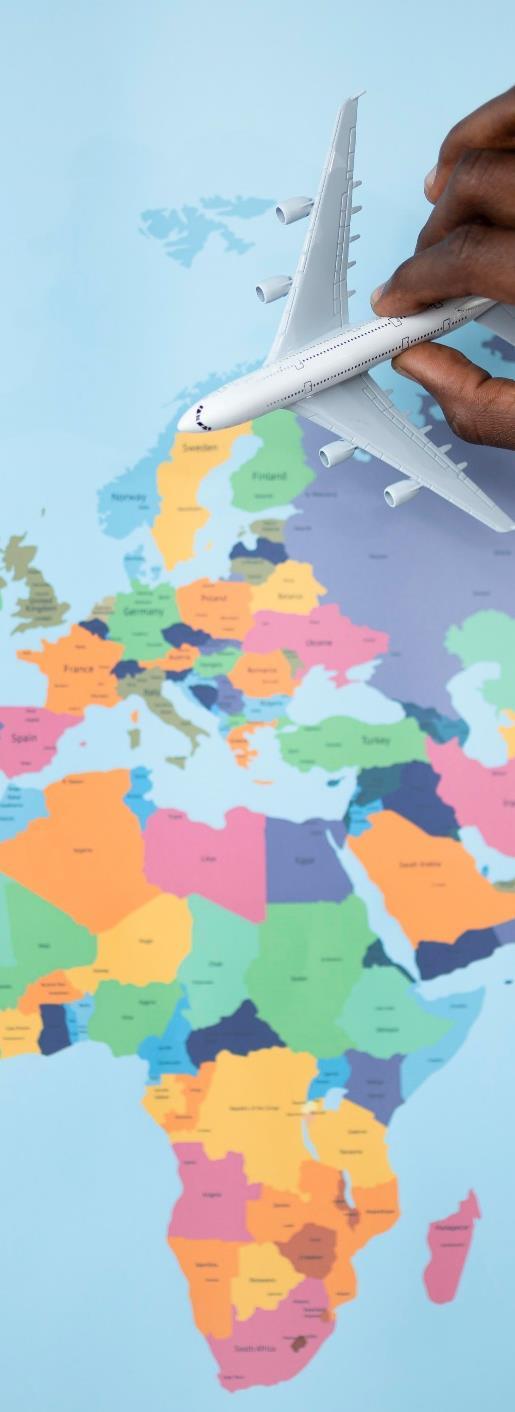
Office: +254 20 2730371/2/2727936
Fax: +25420 2730374 Cell: +254 720 340949
karin@sustainableinclusivebusiness.org jwawira@kepsa.or.ke esther.mangiza@therockgroup.biz